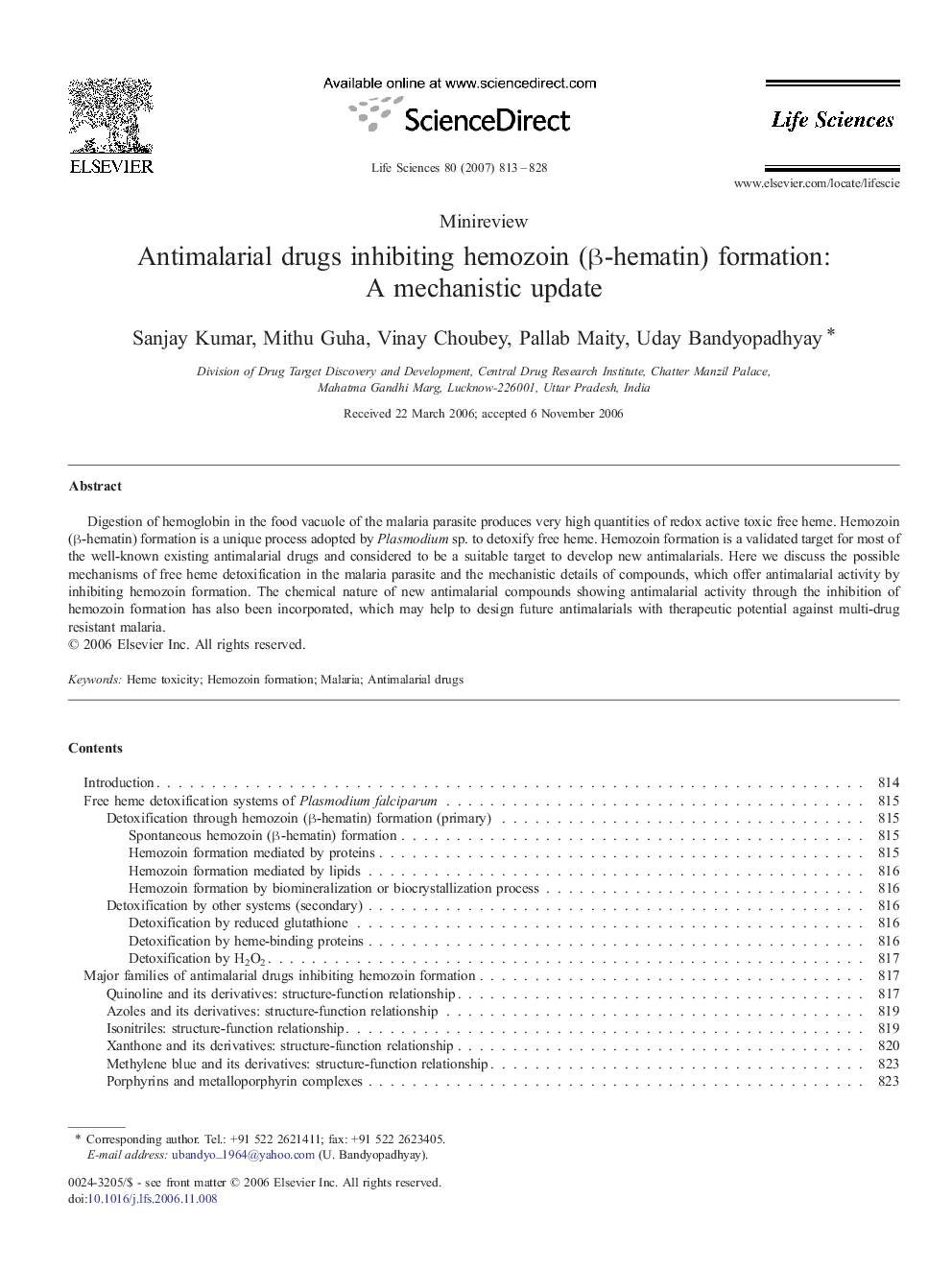| Article ID | Journal | Published Year | Pages | File Type |
|---|---|---|---|---|
| 2553917 | Life Sciences | 2007 | 16 Pages |
Digestion of hemoglobin in the food vacuole of the malaria parasite produces very high quantities of redox active toxic free heme. Hemozoin (β-hematin) formation is a unique process adopted by Plasmodium sp. to detoxify free heme. Hemozoin formation is a validated target for most of the well-known existing antimalarial drugs and considered to be a suitable target to develop new antimalarials. Here we discuss the possible mechanisms of free heme detoxification in the malaria parasite and the mechanistic details of compounds, which offer antimalarial activity by inhibiting hemozoin formation. The chemical nature of new antimalarial compounds showing antimalarial activity through the inhibition of hemozoin formation has also been incorporated, which may help to design future antimalarials with therapeutic potential against multi-drug resistant malaria.
